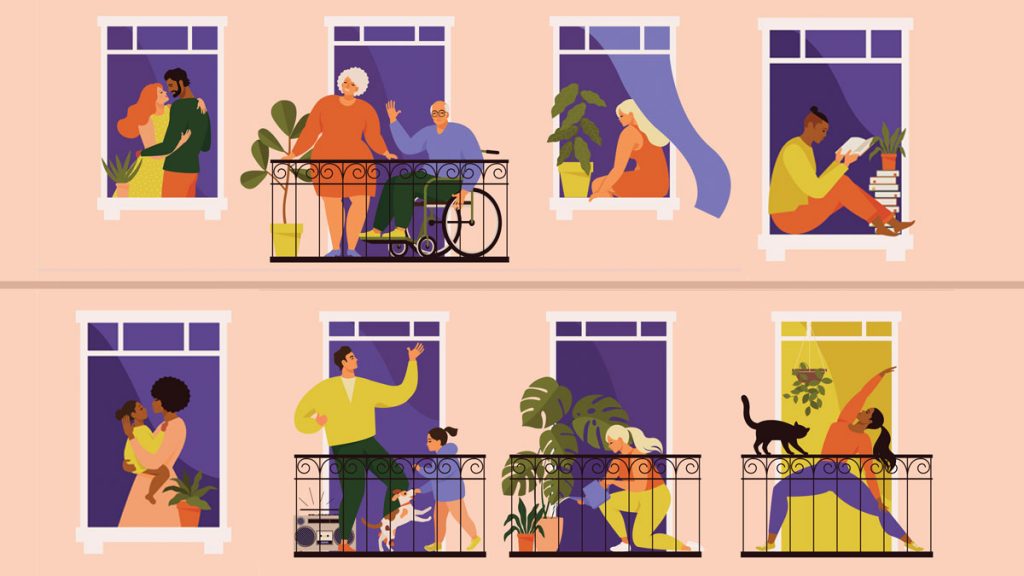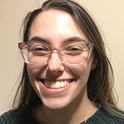
As the Baltimore Community Organizer at a Jewish-led organization, I have continuously strived to better understand how Judaism frames our advocacy, and how our leaders engage in our work through their Jewish identity and understanding. I grew up in a very secular household, and never felt particularly strongly toward Judaism or any religion. What I did gravitate toward was activism—working in coalition, fighting for justice, and using my voice to speak out.
Throughout my year-and-a-half at Jews United for Justice, and through growth opportunities such as this fellowship, I have begun to unpack both how religion and spirituality can be used as a guide and as a way of understanding each other, but also how my idea of activism and organizing was seriously flawed. The first half of this fellowship has highlighted for me how I’ve progressed since I began working in Baltimore, and how much further I have to go.
There was a serious amount of unlearning I needed to do before I could even begin to engage in how to organize effectively. I am still unlearning unhealthy attitudes, values and actions, but now am able to start learning how to be a better person and a better organizer. Much of this stems directly from what I have learned about Judaism, and what I have learned about the power of agency and hope for justice from this fellowship.
I have agency, particularly through my white privilege, to decide if and when I engage in the work toward justice. And yet, many in our community do not. I do not live paycheck to paycheck, yet many in our community do. I do not feel directly targeted by the police, yet many in our community do. I do not struggle to pay my water bill, yet many in our community do.
I used to approach organizing as speaking out for those who could not. This was the wrong approach. Organizing is only effective and useful when it can be used as a tool to be shared with others. It is only effective when others can be empowered to recognize and use their own agency. I can choose if and when I engage in the work, but it is infinitely more powerful to choose to empower others to engage in the work.
Embarrassingly, this concept of ‘agency’ came to me quite recently. I often fail to engage in best practices like ‘leadership development,’ and I think this is because I still struggle to see people in their whole light—that is to say, I fail to recognize how each person is more than the sum of their experiences. Our experiences are multifaceted and layered, and they are constantly evolving and influencing us. In each of our fellowship sessions, I was struck but this seemingly basic yet deep-reaching concept.
In our breakout discussions during the fellowship sessions, it was clear that we all had different experiences, which colored our understanding of the different reading passages. As such, the conversations we had were rich and nuanced, and at the same time never strayed from the core values of agency, justice, and hope. We were able to dissect different passages and connect them to our own work and values, which all stemmed to varying degrees from our religious and spiritual experiences. Thus, we all approached each topic and entered each conversation as our unique, albeit complicated, selves. Our life experiences, woven through our religious and spiritual experiences, allowed me to feel a sense of community and camaraderie with the group while also holding on to the truth of my own interpretation and understanding. That is a key point of this fellowship, and a key point that will make me a better organizer.
To put it bluntly as it relates to our theme: we all need water to live, yet with too little or too much water, we die. Those are the hard truths we can all agree upon. Within that, though, is the gray and nuanced area, where our life experiences interplay.
Water is a beautiful metaphor for how we all navigate the world as we fight to make it more just. There are hard truths that many of us can agree too, and then within that, there are nuances and individual experiences that must be realized and validated if we are to achieve any real justice in our communities.
I am grateful that this fellowship has allowed me to better appreciate how religious traditions, as part of our broader life experiences, are central to organizing thus far. Understanding the truth in our different experiences is central to achieving justice not for oneself but for our communities.
Achieving water justice is both a hard truth and a more abstract metaphorical truth for our collective work in Baltimore—we need it to survive and our water system is currently inequitable. And within those hard truths, we engage in and understand the work differently. Each approach is valid, and each approach validates our own lived truths, while seeking justice for everyone.
 Rianna Lloyd is the Baltimore Community Organizer at Jews United for Justice Baltimore, and a member of the 2020 ICJS Justice Leaders Fellowship.
Rianna Lloyd is the Baltimore Community Organizer at Jews United for Justice Baltimore, and a member of the 2020 ICJS Justice Leaders Fellowship.
Baltimore is part of a national conversation around questions of justice, race, and community. Members of the ICJS Justice Leaders Fellowship consider how Jewish, Christian, and Muslim teachings and practice can contribute to the public conversation about (in)justice. Opinions expressed in this blog are solely the author’s. ICJS welcomes a diversity of opinions and perspectives. We do not seek a single definition of justice between or within traditions.